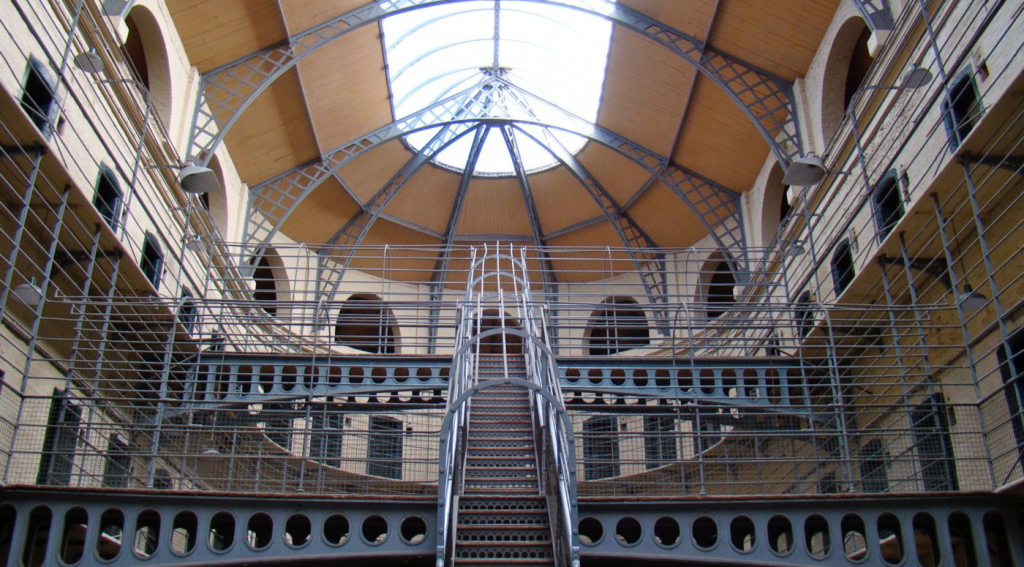
Prison- custodial sentences
One custodial sentence is prison. Prison is a type of custodial sentence. Prison is the most severe sentence a judge can give. It can only be given if there is no other appropriate way of dealing with the person. This is when the criminals get locked away for a period of time so they can no longer commit crime against humanity. In prison criminals can access education, rehab, counselling etc. When in prison, criminals are closely monitored and they are given routines which dictate when they eat and what they can do etc.
One moral issue is that it is our duty to protect criminals as prison is high in sexual assaults and suicide in which vulnerable could be taken advantage of. One Buddhist response to prison is that it is critical as it continues cycles of violence and suffering. advocate for alternatives to prison that promote rehab, education, and community support. Another Buddhist response to prison is that it is a consequence of negative actions and an opportunity for individuals to reflect on their past actions and make amends.
Another Buddhist response to prison is that it advocates for reforms that address the root causes of crime and promotes fairness, equity, and compassion for all individuals. One way that prison is effective is to deter people from committing crime as people know that there are harsh consequences to their actions and they don’t want to be sent to prison.
Prison is also effective as there is rehabilitation within prisons that can help to stop prisoners from reoffending and lead a normal life once they are released. However Prison is ineffective as many people don’t think about their actions before they commit crime and it is in the heat of the moment, so it is not deterring them.
Psychiatric hospitals- custodial sentences.

Another one of these custodial sentences is psychiatric hospitals. Psychiatric hospitals are also a type of custodial sentence for individuals who are severely mentally ill, who will be constantly monitored in a high security facility.
For example, those with personality disorders or schizophrenia. If they have been convicted of a serious crime they are put here as they are unfit to plead in court, where they have access to therapy, medicine. However, not all patients have been convicted of an offence, but those without formal convictions will have displayed seriously aggressive behaviours, including physical or sexual aggression / violence.
One moral issue raised by these custodial sentences is that it goes against victims’ rights as prisons are too soft, don’t always rehabilitate properly which doesn’t give justice to the victim. One Buddhist response to psychiatric hospitals is that encouraging criminals to cultivate mindfulness and ethical behaviour can support their personal growth, resilience, and positive social engagement, reducing aggression, enhancing self-regulation.
Another Buddhist response to psychiatric hospitals is that Buddhists understand the underlying causes of suffering and wrong doing individuals are influenced by past experiences, trauma, societal factors and mental health conditions.
Psychiatric hospitals are effective as they take the mentally ill person and take care of them, making sure they are not a danger to them self or others. However, psychiatric hospitals are less effective as it does not supply justice for the victim as this isn’t really a punishment.
Young offenders institutes- custodial sentences.

Final one of our custodial sentences is for young offenders institutes. The young offenders institute is when youths aged 16 to 21 are sent to a young offenders institution rather than prison. These institutions are similar to prisons but the programmes in place are aimed at people up to the age of 23.
One moral issue raised by this is the right to safety is not there as prisons and Youth offenders institutes have high violence which leads to criminals becoming victims. One religious response to young offenders institutes is that they prioritise rehabilitation and education over punishment aligned with Buddhist values of minimising suffering and promoting the well-being and transformation of individuals, even those who have caused harm.
YOI are effective as they can stop the perpetrator from committing crime from a young age so that it will not continue when they’re older, and they will know the consequences. However, YOI are less effective as the young person will have a criminal record and it will be hard for them to get a well paying job and move on.
For more on custodial sentences, click here!
For more on prison and religion, click here!
